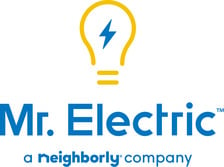
Get matched with top electrical wiring or panel upgrade pros in your area
Enter your zip and get matched with up to 3 pros
Matching on HomeAdvisor


Electrical wiring or panel upgrade pros in Saint Louis

Here at N3 Electrical Services, we focus on quality electrical projects. We use our years of experience and expertise to complete your project with perfection. We are easy to work with, and get the job done right the first time. Customer service and honesty are the most important aspects of our business, and your satisfaction is our number one priority. Please call us today, for a free estimate. We look forward to working with you!
"Called when breaker wouldn't reset and 1/2 the house was in the dark, Came out same day. Problem was wiring on new ceiling fan. Fixed at very reasonable rate. Nathan is very nice and explained everything. Will definitely call for any other jobs that come up."
Mary R on January 2023
Here at N3 Electrical Services, we focus on quality electrical projects. We use our years of experience and expertise to complete your project with perfection. We are easy to work with, and get the job done right the first time. Customer service and honesty are the most important aspects of our business, and your satisfaction is our number one priority. Please call us today, for a free estimate. We look forward to working with you!
"Called when breaker wouldn't reset and 1/2 the house was in the dark, Came out same day. Problem was wiring on new ceiling fan. Fixed at very reasonable rate. Nathan is very nice and explained everything. Will definitely call for any other jobs that come up."
Mary R on January 2023

Veteran-owned small business dedicated to your specific needs. With our diverse and in depth qualifications and knowledge, we are the solution to all of your electrical needs. Utilizing state-of-the-art infrared technology, we can diagnose and resolve issues faster and more efficiently. Give us a call and experience professional service with modern solutions today! Serving Waterloo, Columbia, Valmeyer, Maeystown, Red Bud, and Millstadt. Areas further than 20 miles outside of Waterloo, or across the river, will have additional travel fees.
"We couldn?t be happier with the job Deer Hill Electrical Services did for us! The new panel looks very clean & professional. He & his assistant were prompt, neat, and polite. I will be calling on them again soon for a few light fixtures we need replaced. Very satisfied customer here!"
Brenda M on June 2025
Veteran-owned small business dedicated to your specific needs. With our diverse and in depth qualifications and knowledge, we are the solution to all of your electrical needs. Utilizing state-of-the-art infrared technology, we can diagnose and resolve issues faster and more efficiently. Give us a call and experience professional service with modern solutions today! Serving Waterloo, Columbia, Valmeyer, Maeystown, Red Bud, and Millstadt. Areas further than 20 miles outside of Waterloo, or across the river, will have additional travel fees.
"We couldn?t be happier with the job Deer Hill Electrical Services did for us! The new panel looks very clean & professional. He & his assistant were prompt, neat, and polite. I will be calling on them again soon for a few light fixtures we need replaced. Very satisfied customer here!"
Brenda M on June 2025

Lifestyle Contracting is an estimating and management company for sub contractors in the St. Louis and surrounding areas. Specializing in residential and commercial electrical services, we’ve teamed up with Pace Electric to offer the best in the industry. Let us help you to understand your home or businesses electrical system and assist in any installation.
Lifestyle Contracting is an estimating and management company for sub contractors in the St. Louis and surrounding areas. Specializing in residential and commercial electrical services, we’ve teamed up with Pace Electric to offer the best in the industry. Let us help you to understand your home or businesses electrical system and assist in any installation.
Lights & Switches has been serving Saint Louis and the surrounding areas for nearly 15 years with over 30 years of experience in the electrical industry. We are extremely passionate about the work we do and pride ourselves on providing a high quality service at an extremely affordable price. Customer service is our highest priority and we know building a loyal customer base is essential to the future success of our business. If you are looking for an electrician you can trust, please call Frank today for your free estimate!
Lights & Switches has been serving Saint Louis and the surrounding areas for nearly 15 years with over 30 years of experience in the electrical industry. We are extremely passionate about the work we do and pride ourselves on providing a high quality service at an extremely affordable price. Customer service is our highest priority and we know building a loyal customer base is essential to the future success of our business. If you are looking for an electrician you can trust, please call Frank today for your free estimate!

Looking for a reliable electrician near you? Time and again, locals and businesses choose Brda electrical contractors for our high-quality workmanship and outstanding service. Check out the samples of our work included in our photo albums. We are fully staffed and prepared to handle all manner of commercial and residential services!
"Quality service"
Bill T on March 2024
Looking for a reliable electrician near you? Time and again, locals and businesses choose Brda electrical contractors for our high-quality workmanship and outstanding service. Check out the samples of our work included in our photo albums. We are fully staffed and prepared to handle all manner of commercial and residential services!
"Quality service"
Bill T on March 2024

At Innovate Electric we pride ourselves on being the best electric company in the area. We've built an excellent reputation for customer satisfaction by providing quick estimates, a great attention to detail, and competitive pricing. Being a screened and approved professional gives you the peace of mind you need to allow us to give your home the attention it deserves. Call us today and let's get started!
"The electrician arrived on time & tightened the cover plates that were loose and hanging down on the electric boxes located on the ceiling. Good job."
Mark B on June 2025
At Innovate Electric we pride ourselves on being the best electric company in the area. We've built an excellent reputation for customer satisfaction by providing quick estimates, a great attention to detail, and competitive pricing. Being a screened and approved professional gives you the peace of mind you need to allow us to give your home the attention it deserves. Call us today and let's get started!
"The electrician arrived on time & tightened the cover plates that were loose and hanging down on the electric boxes located on the ceiling. Good job."
Mark B on June 2025

We are committed to excellence in every aspect of our business. We uphold a standard of integrity bound by fairness, honesty and personal responsibility. Our distinction is the quality of service we bring to our customers. Accurate knowledge of our trade combined with ability is what makes us true professionals. Above all, we are watchful of our customers interests, and make their concerns the basis of our business
We are committed to excellence in every aspect of our business. We uphold a standard of integrity bound by fairness, honesty and personal responsibility. Our distinction is the quality of service we bring to our customers. Accurate knowledge of our trade combined with ability is what makes us true professionals. Above all, we are watchful of our customers interests, and make their concerns the basis of our business

Mr. Electric has the power to make things better at your home in the St. Louis & St. Charles metro-areas. Embrace the ease of call-ahead scheduling with Mr. Electric's 24/7 customer service. Our skilled service professionals prioritize quality, respect your home, and provide transparent upfront pricing for peace of mind. All backed by our done right promise.
""
Dalton M on November 2024
Mr. Electric has the power to make things better at your home in the St. Louis & St. Charles metro-areas. Embrace the ease of call-ahead scheduling with Mr. Electric's 24/7 customer service. Our skilled service professionals prioritize quality, respect your home, and provide transparent upfront pricing for peace of mind. All backed by our done right promise.
""
Dalton M on November 2024

Potts Electric, LLC is committed to excellence in every aspect of our business. We uphold a standard of integrity bound by fairness, honesty, and personal responsibility. Our distinction is the quality of service we bring to our customers. Accurate knowledge of our trade combined with ability is what makes us true professionals. Above all, we are watchful of our customers' interests, and make their concerns the basis of our business
" Tech, Prescott was thorough, meticulous, precisie. I highly recommend Prescott and Potts Electric. "
Todd K on June 2025
Potts Electric, LLC is committed to excellence in every aspect of our business. We uphold a standard of integrity bound by fairness, honesty, and personal responsibility. Our distinction is the quality of service we bring to our customers. Accurate knowledge of our trade combined with ability is what makes us true professionals. Above all, we are watchful of our customers' interests, and make their concerns the basis of our business
" Tech, Prescott was thorough, meticulous, precisie. I highly recommend Prescott and Potts Electric. "
Todd K on June 2025

Do you have problems with your electrical grid? Do you need a professional electrician to fix your problems for you? If so, Loveland Home Solutions LLC is the company for the job. Located in the territory of St Charles MO, we have been providing a professional service for our customers in the region since 1972. We are a company that works mainly as a residential electrician, although we could provide a competent service for your commercial needs. We now provide heating and air conditioning service, repair and replacement.
"0"
Jennifer M on June 2025
Do you have problems with your electrical grid? Do you need a professional electrician to fix your problems for you? If so, Loveland Home Solutions LLC is the company for the job. Located in the territory of St Charles MO, we have been providing a professional service for our customers in the region since 1972. We are a company that works mainly as a residential electrician, although we could provide a competent service for your commercial needs. We now provide heating and air conditioning service, repair and replacement.
"0"
Jennifer M on June 2025
FAQs for electrical wiring or panel upgrade projects in Saint Louis, MO
HVAC systems consume the largest portion of household electricity, as they operate frequently throughout the year. Water heaters represent another significant energy user in most homes, along with refrigerators that run continuously. Clothes dryers, dishwashers, and cooking appliances also contribute substantially to electricity usage. Entertainment systems, particularly those left in standby mode, can collectively add meaningful amounts to monthly bills.
Time-of-use electricity plans charge different rates depending on when you use power. Peak hours—typically weekday afternoons and evenings—come with premium rates, while overnight and weekend hours often feature discounted pricing. Households that can shift major electricity usage to off-peak hours may benefit from these plans. The effectiveness depends on your schedule flexibility and ability to run major appliances during lower-rate periods.
Solar power systems represent a significant investment, currently averaging between $18,115 and $35,165 for residential installations. The financial benefit varies based on your location's sun exposure, local electricity rates, and available incentives. Homes with consistently high electricity bills see better returns on solar investments. Many homeowners consider both immediate savings and property value enhancement when evaluating solar options. Contact solar panel installers near you to discuss the potential costs and benefits for your home.





- Circuit Breaker / Electrical Panel Installation
- Doorbell / Security Camera Installation
- Electrical - Multiple Projects
- Electrical Multi-Item Installation
- Doorbell / Security Camera Repair
- Electrical Multi-Item Repair
- Electrical Item Repair
- Power Outlet Replacement
- Electric Vehicle Charger Installation
- Ceiling / Bath Fan Replacement
- Light Fixture Installation
- Smoke Detector Repair
- Switch Repair
- Doorbell / Security Camera Replacement
- Power Outlet Repair
- Smoke Detector Replacement
- Ceiling / Bath Fan Installation
- Electrical Item Installation
- Electrical Switches, Outlets & Fixtures - Install or Repair
- Switch Installation
- Light Fixture Replacement
- Electrical for Home Addition or Remodel - Install
- Electric Vehicle Charger Repair
- Ceiling / Bath Fan Repair
- Light Fixture - Install
- Lightning Protection - Install or Repair
- Circuit Breaker / Electrical Panel Repair
- Power Outlet Installation
- Light Fixture Repair
- Switch Replacement
- Birmingham
- Phoenix
- Tucson
- Fresno
- Long Beach
- Los Angeles
- Modesto
- Sacramento
- San Diego
- San Francisco
- San Jose
- Denver
- Hartford
- Washington DC
- Fort Lauderdale
- Jacksonville
- Miami
- Orlando
- Tampa
- Atlanta
- Chicago
- Indianapolis
- Louisville
- New Orleans
- Baltimore
- Boston
- Detroit
- Grand Rapids
- Minneapolis
- Saint Paul
- Kansas City
- Saint Louis
- Las Vegas
- Albany
- New York
- Asheville
- Charlotte
- Greensboro
- Raleigh
- Winston Salem
- Cincinnati
- Cleveland
- Columbus
- Oklahoma City
- Portland
- Harrisburg
- Philadelphia
- Pittsburgh
- Providence
- Memphis
- Nashville
- Austin
- Dallas
- El Paso
- Fort Worth
- Houston
- San Antonio
- Salt Lake City
- Norfolk
- Richmond
- Virginia Beach
- Seattle
- Madison
- Milwaukee




